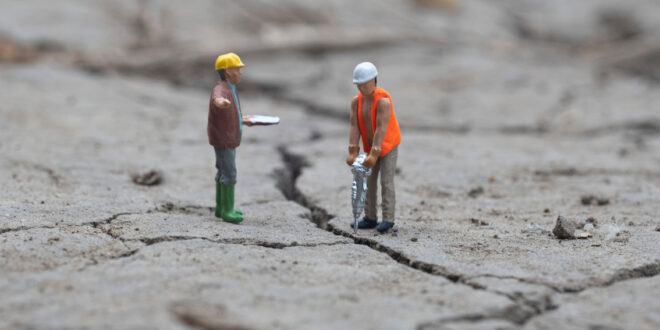The 2023 flooding in Auckland and the East Coast was a wake up call for the rest of us to check our insurance cover. For those who didn’t do it then, this is your reminder to do it now!
If you’ve received your annual policy renewal from your insurer that gives a default sum insured, have you checked it’s enough? In the event of partial or full destruction of your home, the sum insured is the maximum you will receive to fund a rebuild to its previous condition, but most of us are underinsured.
Over the course of more than 25,000 quantity surveys of residential properties around New Zealand, my team has found that around 93% of homeowners are underinsured to the tune of 25% to 50%. That figure, 93%, is the proportion of people opting for the default sum provided by their insurer, and in almost every case, it is insufficient. It doesn’t equal anything near the true cost of rebuild in the event of fire, earthquake, severe flood or other destructive event.
Of the 7% of people who seek extra help to determine the sum they will insure for, some seek quantity surveys or property valuations, and most are using online calculators such as Cordell. The trouble with a calculator is that it’s only ever able to provide an approximation. It cannot assess materials and absorb the kind of detail that a trained human can, and that is necessary for an accurate construction cost assessment. While a calculator will usually give a higher sum than a default sum, just as commonly it will still be insufficient.
Your insurer wants to cover you for the right amount, and you will find that policy documents state clearly that you should not rely on the default sum provided, but seek a more comprehensive assessment on which to base your sum insured. The default sum is essentially a random number – the problem is that neither banks nor insurers are in a position to provide their customers with more accurate figures. The onus is on the homeowner to get it right.
Lest this all sound a bit gloomy, I’d like to offer some advice. There are professional property and construction cost assessment experts around the country who can examine your property and all buildings and improvements and give you a detailed report on which to base your sum insured. Quantity surveyors specialize in construction cost assessments of all kinds.
The Difference Between a QS and a Property Valuer
Different types of professional property assessments will produce different information, so be sure you are getting the kind you need for home insurance purposes – that is, one that will include a detailed report on every aspect of the rebuild cost of your home and all outbuildings (this includes garages, sheds, decks, swimming pools, tennis courts and so on).
A property valuer will assess your property in its entirety, and subtract the land value from the overall value to give the value – and rebuild cost – of improvements. As part of their training, valuers spend about four months learning how to assess buildings and crunch the numbers involved, and many rely on calculators. They are not required to provide warranties or guarantees of their reports. If you want a full assessment of your property value in relation to the area’s amenities, its location and other factors, rather than strictly a rebuild cost, this may be right for you.
A quantity surveyor specializes in construction cost assessment, in which they receive a minimum of four years’ training. Many quantity surveyors will provide warranties and guarantees of their insurance reports for a set period, and have professional indemnity insurance. They do not assess and value land: for the purposes of an insurance report, they are assessing only buildings and other improvements. If getting the right sum insured is your primary concern, a quantity surveyor will provide the detail you need.
What a QS Should Offer You
If you do consider engaging a professional quantity surveyor, first request evidence of:
- Professional qualifications – NZIQS (New Zealand Institute of Quantity Surveyors) membership, QSI (Quantity Surveyors Institute), RICS (Royal Institution of Chartered Surveyors);
- Professional indemnity insurance;
- Track record / experience in the field;
- Format of insurance report (ie is it approved by ICNZ);
- Warranty and guarantee of insurance report for a fixed term (our firm guarantees reports for two years from date of issue);
- Content of insurance report and what it will provide, ie detail breakdown of costs.
FAQs
- Will my insurance premium go up? This depends on whether the insurance report finds that the current level of cover needs to increase to reflect the cost of rebuild. On average, every additional $50,000 worth of cover costs approximately $75.
- How often am I required to seek an assessment for insurance? Insurance policies must be renewed annually. However, insurance reports by Construction Cost Consultants cover a two-year period.
- How long does it take to get a report? The time from request for survey to issue of report is approximately 10 days. The time a quantity surveyor will spend assessing your home and property for a first report is approximately two hours.
- Will my insurance report / increased insurance premium affect my rates? No. The information is solely for the person who orders the report, and is not provided to any third party by Construction Cost Consultants.
- Does the survey include decks, outbuildings, swimming pools and so on? Yes. Everything except land is assessed for construction cost and included in the report.
By Gary Caulfield, Managing Director of Construction Cost Consultants Residential
Want to increase your cover? Get in touch with Over Fifty Insurance










Admin - 3 years ago
An excellent example Nev, and something we should all consider. Thank you for taking the time to share your story.